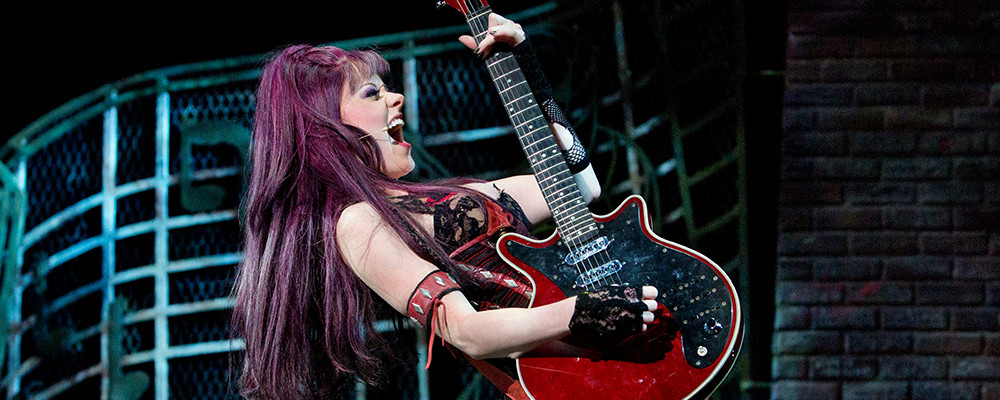We Will Rock You at Ahmanson Theater Through August 24th
Matt McAllister
George Frederick Handel (1685-1759) is best known for his masterwork the “Hallelujah” chorus, a favorite at Christmas time, but what is less known is how he was forced to compose this work and others of its type due to the emergence of what we now recognize as an entirely different genre. Lesser known still is what any of this has to do with the Queen jukebox musical We Will Rock You. Handel was primarily a composer of Italian opera…in London.
A shrewd businessman and one of history’s few financially-successful composers, for decades Italian opera provided him with a lucrative income, but all of that changed in 1728 when John Gay took popular songs of the day, changed their lyrics, and interpolated a narrative to make it a cohesive whole. The work The Beggar’s Opera changed the face of musical theater, as well as Handel’s economic outlook forever. Gay appealed to a huge audience that was turned off by opera’s ludicrous plots, its language barrier, its castrati male leads (yes, that’s exactly what it sounds like), and most importantly its cost of admission. The Beggar’s Opera used preexisting popular tunes and soap-opera melodrama involving prostitutes and murderers, all set in contemporary London.
In the short run, Gay made himself a fortune and decimated Handel’s business model, but in the long run he gave birth to what we now recognize as Broadway theater, and more specifically the jukebox musical. Now, nearly 300 years later, a recent iteration of this genre is We Will Rock You.
The show is set in an Orwellian, dystopic future, where all youth (Ga Ga Kids) are forced to dress alike and listen to the same computer-generated music (instruments are forbidden) in order to make them think alike. Until the hero of the story seriously regards his prophetic dreams of releasing his generation from intellectual and creative tyranny through music, Rock ‘n’ Roll is entirely unknown. Fighting against iPlanet’s corporate government, two young couples risk life and limb to free their people through music.
Part messianic myth and part 1984, WWRY uses Queen’s best known songs to weave together the plot and it does so in surprisingly convincing fashion. Absent, though, is “Bohemian Rhapsody.” The performers reserve that song for an encore, usually asking the audience to show through applause and shouts how much they want to hear it. Now who, exactly, is promoting group-think? There is, of course, a certain irony that a show critical of a lack of originality and individualism uses nearly 40-year-old repackaged songs in order to convey its message. But, as John Gay discovered, familiarity with the music will make allies of any audience.
The show has been roundly panned by critics since its debut in 2002, but that hasn’t stopped WWRY from attaining enormous commercial success and a loyal fan base. The appeal of the jukebox musical is that it ushers into the theater both the uninitiated and those who feel uninspired by traditional productions. The jukebox musical worked its magic on thousands of Londoners in the early 18th century, and this one will likely win live theater many more converts before its run is completed.
We Will Rock You will be at Ahmanson Theater through August 24.

